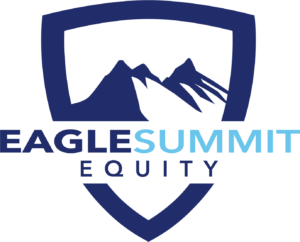First of all, what IS a Self-Directed Retirement Account (versus a Traditional Retirement Account)?
In essence, it is a type of retirement savings account. This type gives you more control and flexibility over where you’d like to invest your savings. A Traditional Retirement account basically takes care of that decision for you.
Managing your retirement savings through a self-directed account, like a Solo 401(k) or a Self-Directed Individual Retirement Account (SDIRA), can offer several advantages. Let’s explore some of these benefits in a simpler way:
- Financial Freedom: With self-directed accounts, you have more freedom to invest in different things such as cryptocurrency, real estate, or private equity. This give you a chance to potentially earn higher returns compared to more conservative investment strategies.
- Flexibility and Choice: Taking charge of your own retirement accounts gives you more independence and options for planning your future. For example, you can use your savings to start a new business or buy things that interest you personally.
- Increased Contributions: Self-directed accounts allow you to save more money for retirement compared to standard IRAs or Roth IRAs. For instance, a Solo 401(k) lets you contribute up to $66,000 in 2023, while a traditional IRA limits contributions to $6,500 for those under 50 and $7,500 for those over 50.
- Tax Advantages: Solo 401(k)s and SDIRAs offer substantial tax benefits. With a Solo 401(k), contributions and investment returns grow tax-deferred until withdrawal. SDIRAs generally allow tax deductions for contributions, and earnings accumulate tax-free until withdrawal.
- Estate Planning: Self-directed accounts can be useful for estate planning. By preparing in advance, these accounts can help transfer wealth to heirs with fewer inheritance taxes, making ownership transfer smoother.
- More Investment Options: Self-directed accounts provie access to a wider range of investment opportunities compared to standard IRAs. You can invest in real estate, private equity, precious metals, and other non-conventional assets. The ability to diversify your investments can potentially lead to higher returns.
Who Can Create a Solo 401(k)?
A Solo 401(k), also known as an individual 401(k), is designed for self-employed individuals and small business owners who don’t have any full-time employees besides themselves and their spouses. This means that only those who are self-employed or own a small business and meet these requirements can open a Solo 401(k) account. Different business structures, like sole proprietorships, partnerships, LLCs, and corporations, fall into this category.
Who Can Create an SDIRA?
Any person who is currently working and earning income can open a self-directed IRA. this includes self-employed individuals, small business owners, and freelancers. However, contribution limits and tax deductions depend on factors like income and whether the person is enrolled in other employer-sponsored retirement plans. It’s recommended to consult financial experts and tax accountants to learn about retirement savings options and qualifying requirements.
It’s important to note that self-directed accounts require more effort and carry a higher risk of investment loss compared to traditional accounts. Before making any financial commitments, investors should educate themselves about available investment opportunities and conduct thorough research. Additionally, self-directed accounts may have higher fees than conventional retirement accounts.
Where Can You Create a Self-Directed IRA or 401(k)?
There are retirement account service providers that specialize in self-directed accounts and can hep you establish a Solo 401(k) or self-directed IRA. It’s essential to do your research and choose a provider that offers these account types, as not all providers do. You may also need to consider providers who specifically cater to self-directed retirement plans. Before finalizing your decision, compare fees, investment choices, and customer support among different providers.
If you want to know if self-directed accounts are a good fit for your investment plan, email us at in**@***************ty.com.
More articles: https://eaglesummitequity.com/blog
